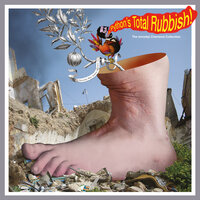| Decomposing Composers |
|---|
| Intro: Right ho, darling. |
| Yeh, be home |
| (spoken) about 8:30. |
| No, no I’ll go on a bike. |
| Verse: Beethoven’s gone but his music lives on, |
| And Mozart don’t go shoppin’no more, |
| You’ll never meet Liszt or Brahms again, |
| And Elgar doesn’t answer t he door. |
| Schbert and Chopin used to chuckle and laugh, |
| Whilst composing a long symphony, |
| But one hundred and fifty years later, |
| There’s very little of them left to see. |
| Chorus: They’re decomposing composers, |
| There’s nothing much anyone can do, |
| ou can still hear Beethoven, |
| But Beethoven cannot hear you. |
| Verse: Hndel and Haydn and Rachmaninov, |
| Enjoyed a nice drink with their meal, |
| But nowadays no-one will serve them, |
| And their gravy is left to congeal. |
| Verdi and Wagner delighted the cro |
| wds, |
| With their highly original sound, |
| The pianos they played are still working, |
| But they’re both six feet underground. |
| Chorus: They’re decomposing composers, |
| There’s less of them every year, |
| You can say what you like to Debussy, |
| But there’s not m uch of him left to hear. |
| Finish: Claude Achille Debussy, died 1918. |
| Christophe Willebaud Gluck, died 1787. |
| Carl Maria von Weber, not at all well |
| 1825, died 1826. Giacomo Meyerbeer, |
| still alive 1863, not still alive 1864. |
| Modeste Mussorgsky, 1880 g oing to parties, |
| no fun anymore 1881. Johan Nepomuck |
| Hummel, chatting away nineteen to the |
| dozen with his mates down the pub every |
| evening 1836, 1837 nothing. |
Lyrics Decomposing Composers - Monty Python, Graham Chapman, Michael Palin

Song information On this page you can read the lyrics of the song Decomposing Composers , by -Monty Python
Song from the album: Monty Python's Total Rubbish! The (Mostly) Charisma Collection
In the genre:Поп
Release date:10.10.2019
Song language:English
Record label:Virgin
Select which language to translate into:
Write what you think about the lyrics!
Other songs by the artist:
| Name | Year |
|---|---|
Camelot Song ft. John Cleese, Terry Jones, Michael Palin | 2019 |
| 1993 | |
| 2015 | |
| 1993 | |
| 2013 | |
| 2019 | |
| 1993 | |
| 2013 | |
| 1993 | |
| 2019 | |
| 2013 | |
| 2019 | |
| 2013 | |
| 2013 | |
| 2013 | |
| 1993 | |
Do What John ft. Graham Chapman, Michael Palin, John Cleese | 2019 |
Brave Sir Robin ft. Graham Chapman, Michael Palin, John Cleese | 2019 |
| 1986 | |
Spam Song ft. Graham Chapman, Michael Palin, John Cleese | 2019 |